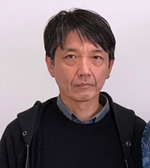La Follia d'amore
| ||||||||||
|
| ||||||||||
"La Follia d'amore"[2][Japanese title] is the theme for the second phase of Hyness's boss battle. It first appeared in Kirby Star Allies and was composed by Jun Ishikawa.[1] The title translates to "The Folly of Love" in Italian.
Composition[edit]
"La Follia d'amore" is one of five tracks generally associated with Hyness and the altar room of the Divine Terminus. It is composed in the style of gamelan, and the instrumentation consists of metallophones, a bowed string instrument, and a bassoon. After a foreboding, mostly gamelan-like seven-second introduction, the track kicks into an energetic allegro beat of around 165 bpm, featuring heavy percussion and bass and combining frenetic string and metallophonic samples for the melody. Past the one-minute mark, the song becomes increasingly electronic, then slows to a leisurely andante pace of around 85 bpm. After maybe a half-minute reprieve, the song loops back to the high-energy beat of the start.
In a HAL Laboratory sound staff roundtable discussion included in the Kirby Star Allies: The Original Soundtrack booklet, Shinya Kumazaki considers this track as embodying Ishikawa's style of music (石川節 or Ishikawa-bushi, literally meaning "Ishikawa-tune"), surging with his sensibilities and sense of vitality and energy.[3][4] The same discussion reveals that Jun Ishikawa was initially anxious about composing this track and its sister track. Kumazaki had requested a "gamelan-like song", but Ishikawa felt bound by the limitations of gamelan's musical scales and its origins as a musical form associated with Indonesian religious rituals. When he consulted Kumazaki in effect whether he could deviate from this traditional form, Kumazaki responded, "If a real gamelan player hears this, and they think, 'Oh, was that supposed to be gamelan?', that's fine." Ishikawa was relieved after this, and continued composing without worrying about the limitations.[5][4] Hirokazu Ando also joked that he was worried when he saw that Kumazaki requested a gamelan song, and was relieved that it didn't fall to him.[6][4]
Etymology[edit]
The title of this track is presented in Italian. While it is unknown what the exact significance of the phrase "The Folly of Love" is, it may be a reference to the classical piece "Folia" ("Folly"), which is said to have been named after the "frenzied way peasants twirled to the music".[7] This may reflect the strange dancing movements that Hyness performs during his battle, which are explicitly called a "frenzied dance" (きょう乱のおどり) in Japanese; the English version translates the term as "rampage".[8]
Other appearances[edit]
In addition to appearing in Hyness's boss battle, the main motif of the song appears briefly in remixed form as part of the track accompanying the "Let Them Know We're Happy" Celebration Picture.
Names in other languages[edit]
| Language | Name | Meaning |
|---|---|---|
| Japanese | La Follia d'amore[9] ra forria damōre |
La Follia d'amore (While the soundtrack lists the title of this song in romaji, promotional material uses the katakana transliteration alongside the romaji rendition of the title.) |
References
- ↑ 1.0 1.1 Kirby Star Allies Jukebox
- ↑ Kirby Star Allies: The Original Soundtrack
- ↑ "私はそれを「石川節」って呼んでるんですけど、ほとばしる石川さんの感性と生命力が伝わる、すごいエネルギーのある1曲ですね。" –Shinya Kumazaki (Kirby Star Allies: The Original Soundtrack)
- ↑ 4.0 4.1 4.2 (See also the translation of the same discussion by Gigi.)
- ↑ "でもガムランって音階が限られるので、その縛りでやっちゃうと振り幅として作りようがない。特に第2形態があるわけですし、普通のガムランだけでは通せないなと。だから熊崎ディレクターに「ガムランって書いてあるけど本当にガムラン?」って聞いたら、「ガムランにホントもウソもある?」って言うので、「元々ガムランっていうのはインドネシアの宗教音楽で…」って説明しはじめたんです。そうしたら5秒ぐらい説明したところで熊崎ディレクターは「本当のガムランやってる人が聞いたら、えっ今のガムランのつもりだったんですか?ってぐらいのガムランでいい」って、笑顔で言ったんですね。「指定を緩めないと無理だ」ということを5秒くらいの説明でニコッと笑って理解したっていうのが、個人的な現場ハイライトでした。" –Jun Ishikawa (Kirby Star Allies: The Original Soundtrack)
- ↑ "私はそのガムランとかいう指示を見て、「あ一自分にきたらどうしよう」って思ってました。いやいや助かったわ。" –Hirokazu Ando (Kirby Star Allies: The Original Soundtrack)
- ↑ See, for example, this article by the BBC.
- ↑ Kirby Star Allies Japanese translated boss pause sceeen descriptions (translation by SYZekrom)
- ↑ Twitter link to @Kirby_JP Star Allies game report
 (Wayback Machine snapshot)
(Wayback Machine snapshot)
